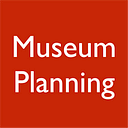Museum Integrity

“Museum integrity” refers to the principles and practices that ensure museums operate with honesty, transparency, and authenticity. It encompasses various facets of museum operations, from the acquisition and care of collections to how information is presented to the public. Here are some key elements of museum integrity:
1. Authenticity in Representation: Museums ensure that the artifacts, artworks, and information they present are genuine and accurately represented. This includes ensuring that objects are not forgeries and that their provenance is clear and untainted by illegal or unethical practices.
2. Ethical Acquisition: Museums obtain objects through ethical and legal means. This means avoiding acquisitions from illicit trade or from sources that have not obtained items with the consent of the original communities or owners.
3. Transparency: Museums operate transparently, especially regarding their collection practices, funding sources, and affiliations. This ensures public trust and confidence in the institution.
4. Inclusivity and Diversity: Ensuring diverse representation in exhibitions and programs is crucial. This involves presenting multiple perspectives and voices, especially from communities that have historically been marginalized or underrepresented.
5. Stewardship of Collections: Museums have a responsibility to care for the objects in their custody, ensuring they are preserved for future generations. This involves proper conservation practices, appropriate storage, and regular assessment of the collection’s condition.
6. Educational Commitment: Museums have a responsibility to educate the public. This means providing accurate, well-researched information in an accessible manner, free from undue external influence.
7. Engagement with Communities: Museums actively engage with the communities they represent, especially when exhibiting culturally sensitive materials. This might mean collaborating with indigenous communities when displaying native artifacts or working with local groups to co-curate exhibitions.
8. Accessibility: Ensuring that everyone, regardless of physical, cognitive, or economic barriers, can access the museum and its resources is a core principle of museum integrity.
Museum integrity is upholding a set of ethical standards that ensure museums operate in a manner that respects the trust placed in them by the public, the communities they serve, and the subjects they represent.
To reach an audience, museums must meet them “where they are,” appreciating their diverse backgrounds, worldviews, and learning styles. This involves acknowledging that today’s museum-goers are not just passive consumers of information but active participants in the learning process.
Upholding Diversity, Equity, Accessibility, and Inclusion (DEAI)
For museums to maintain relevance and integrity, they must champion DEAI at every level — from curation and exhibit design to staffing and leadership. Museums are places where diverse voices are amplified, not silenced; where histories of marginalized communities are told with authenticity; where accessibility is prioritized, ensuring all visitors, regardless of physical or cognitive abilities, feel welcomed; and where inclusion is not just a buzzword but a deeply embedded principle.
Conclusion
Museums, in light of current events and global challenges, have a vital role to play. By upholding the highest standards of integrity and DEAI, they can foster understanding, cultivate empathy, and inspire action. As society grapples with the complexities of contemporary issues, museums can serve as guiding lights, illuminating the way forward.
